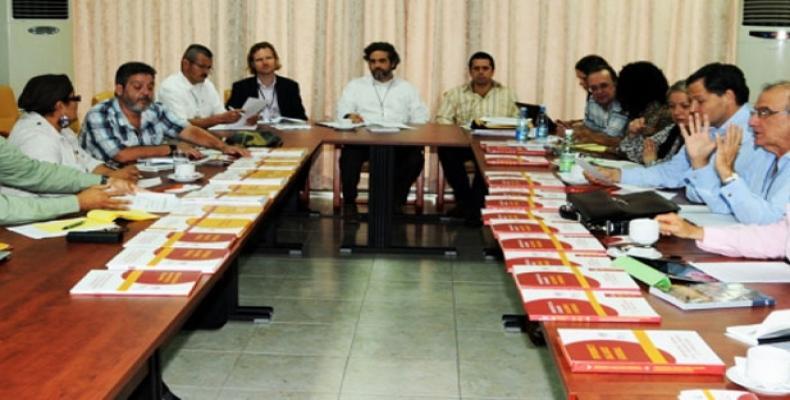Bogota, July 12 (PL-RHC), -- The voices of the Colombian armed conflict's victims have been attentively heard during the second regional forum hosted by the Government and the FARC-EP guerrillas, that concluded Friday in Barrancabermeja.
Heartbreaking stories in more than 50 years of clashes, but mainly the willingness to reach peace marked by social justice and a reconciled country, have been the central topics of the forum's discussions, attended by some 450 delegates from seven departments assembled in this city, one of the most affected by the armed conflict.
Sexual violence against women, the necessity of creating truth commissions and the steps to guarantee that those actions never take place again, are the subjects tackled in the meeting, the first stage of which was held last week in Villavicencio, Meta.
Stephane Jaqueme, High Commissioner of the United Nations Agency for Refugees (UNHCR) said yesterday during the opening ceremony that all victims affected during the conflict are equal and they should be equally treated.
Representatives from Antioquia, Norte de Santander, Santander, Arauca, Boyaca, Bolivar and Cesar participate in this second forum and make suggestions to contribute, from their own experiences, to the fourth issue of the five-topic agenda of the peace process.
The next meeting will be held on July 17th and 18th, in Barranquilla, Atlantico, while the national meeting will take place in the southern city of Cali (Valle del Cauca) on August 5th and 6th, with the participation of more than 1,200 delegates.
Peace Process Focuses on Colombian Conflict Victims

Related Articles
Commentaries
MAKE A COMMENT
All fields requiredMore Views
- Presidential candidate Luisa González commits to the right to education, health and social justice in Ecuador
- Cuba defends Africa-America shared future at UN Tourism Summit
- Cuban foreign minister arrives in Honduras for CELAC Summit
- Massive anti-Trump protests take to the streets across the United States
- IX CELAC Summit concludes with the signing of the Tegucigalpa Declaration

